

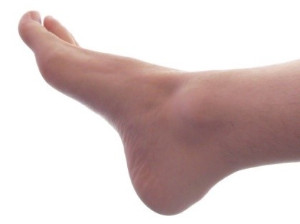 Since we spend a great majority of our lives on our feet, we should take utmost care of them. Experts suggest stretching the feet can reduce many issues imposed on our feet as they can suffer from a variety of ailments. The most obvious sign of a foot issue is pain. While pain without injury can be easily ignored, a lack of treatment can lead to serious chronic pain such as plantar fasciitis or arthritis. Discolored skin on the foot should not go untreated. A biopsy is usually done when the area is asymmetrical, has irregularities around the edges, and is larger than five millimeters. Numbness, swelling, and cold feet are all early symptoms of various foot issues that should not be overlooked if ongoing. Athlete’s foot and other fungal infections of the foot are often first noticed as an itchy foot. Fungal infections can be treated over-the-counter, but should be diagnosed by a professional if conditions worsen or persist.
Since we spend a great majority of our lives on our feet, we should take utmost care of them. Experts suggest stretching the feet can reduce many issues imposed on our feet as they can suffer from a variety of ailments. The most obvious sign of a foot issue is pain. While pain without injury can be easily ignored, a lack of treatment can lead to serious chronic pain such as plantar fasciitis or arthritis. Discolored skin on the foot should not go untreated. A biopsy is usually done when the area is asymmetrical, has irregularities around the edges, and is larger than five millimeters. Numbness, swelling, and cold feet are all early symptoms of various foot issues that should not be overlooked if ongoing. Athlete’s foot and other fungal infections of the foot are often first noticed as an itchy foot. Fungal infections can be treated over-the-counter, but should be diagnosed by a professional if conditions worsen or persist.
Everyday foot care is very important to prevent infection and other foot ailments. If you need your feet checked, contact Dr. Alan J. Spector from Shore Podiatry. Our doctor can provide the care you need to keep you pain-free and on your feet.
Everyday Foot Care
Often, people take care of their bodies, face and hair more so than they do for their feet. But the feet are a very important aspect of our bodies, and one that we should pay more attention to. Without our feet, we would not be able to perform most daily tasks.
It is best to check your feet regularly to make sure there are no new bruises or cuts that you may not have noticed before. For dry feet, moisturizer can easily be a remedy and can be applied as often as necessary to the affected areas. Wearing shoes that fit well can also help you maintain good foot health, as well as making it easier to walk and do daily activities without the stress or pain of ill-fitting shoes, high heels, or even flip flops. Wearing clean socks with closed shoes is important to ensure that sweat and bacteria do not accumulate within the shoe. Clean socks help to prevent Athlete’s foot, fungi problems, bad odors, and can absorb sweat.
If you have any questions please feel free to contact our office located in Point Pleasant, NJ . We offer the newest diagnostic and treatment technologies for all your foot and ankle needs.
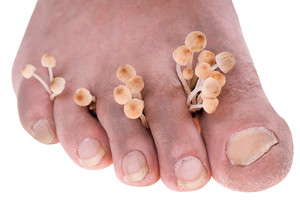 If you are experiencing symptoms such as the thickening and yellowing of your toenails, you may be suffering from toenail fungus. Toenail fungus thrives on dead tissues, dead skin cells, and keratin in our nails. Infections occur when our toenails are subjected to a moist environment, such as sweaty shoes. Toenail fungus often starts in the toenails first, and if left untreated, can spread to your fingernails as well. Treatment can involve antifungal drugs and laser therapy. If you have a case of toenail fungus, be sure to maintain proper foot hygiene and to dry properly after washing.
If you are experiencing symptoms such as the thickening and yellowing of your toenails, you may be suffering from toenail fungus. Toenail fungus thrives on dead tissues, dead skin cells, and keratin in our nails. Infections occur when our toenails are subjected to a moist environment, such as sweaty shoes. Toenail fungus often starts in the toenails first, and if left untreated, can spread to your fingernails as well. Treatment can involve antifungal drugs and laser therapy. If you have a case of toenail fungus, be sure to maintain proper foot hygiene and to dry properly after washing.
For more information about treatment, contact Dr. Alan J. Spector of Shore Podiatry. Our doctor can provide the care you need to keep you pain-free and on your feet.
Toenail Fungus Treatment
Toenail fungus is a condition that affects many people and can be especially hard to get rid of. Fortunately, there are several methods to go about treating and avoiding it.
Antifungals & Deterrence
Oral antifungal medicine has been shown to be effective in many cases. It is important to consult with a podiatrist to determine the proper regiment for you, or potentially explore other options.
Applying foot powder on the feet and shoes helps keep the feet free of moisture and sweat.
Sandals or open toed shoes – Wearing these will allow air movement and help keep feet dry. They also expose your feet to light, which fungus cannot tolerate. Socks with moisture wicking material also help as well.
If you have any questions please feel free to contact our office located in Point Pleasant, NJ . We offer the newest diagnostic tools and technology to treat your foot and ankle needs.
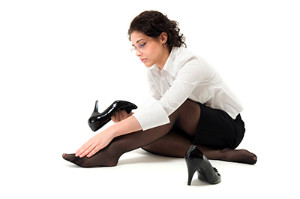 It is a commonly known fact that high heels are bad for you, with prolonged wearing leading to both a multitude of short-term problems such as corns and long-term problems such as bunions and back pain. Although women’s shoes like high heels are a popular fashion staple, they are actually considered improperly-fitting shoes that are bad for your heels, arches, and overall foot health. It is suggested to avoid heels that are higher than 2 to 3 inches, and to look for heels that have enough room in the front so that you are able to move your toes.
It is a commonly known fact that high heels are bad for you, with prolonged wearing leading to both a multitude of short-term problems such as corns and long-term problems such as bunions and back pain. Although women’s shoes like high heels are a popular fashion staple, they are actually considered improperly-fitting shoes that are bad for your heels, arches, and overall foot health. It is suggested to avoid heels that are higher than 2 to 3 inches, and to look for heels that have enough room in the front so that you are able to move your toes.
High heels have a history of causing foot and ankle problems. If you have any concerns about your feet or ankles, contact Dr. Alan J. Spector from Shore Podiatry. Our doctor can provide the care you need to keep you pain-free and on your feet.
Effects of High Heels on the Feet
High heels are popular shoes among women because of their many styles and societal appeal. Despite this, high heels can still cause many health problems if worn too frequently.
Which Parts of My Body Will Be Affected by High Heels?
What Kinds of Foot Problems Can Develop from Wearing High Heels?
How Can I Still Wear High Heels and Maintain Foot Health?
If you want to wear high heeled shoes, make sure that you are not wearing them every day, as this will help prevent long term physical problems. Try wearing thicker heels as opposed to stilettos to distribute weight more evenly across the feet. Always make sure you are wearing the proper shoes for the right occasion, such as sneakers for exercising. If you walk to work, try carrying your heels with you and changing into them once you arrive at work. Adding inserts to your heels can help cushion your feet and absorb shock. Full foot inserts or metatarsal pads are available.
If you have any questions please feel free to contact our office located in Point Pleasant, NJ . We offer the newest diagnostic and treatment technologies for all your foot and ankle needs.
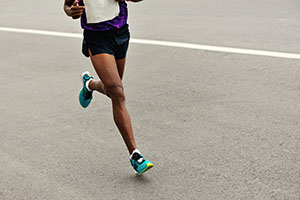 Running shoe companies are looking to 3D-printing to provide customers with the comfort and customization many runners require in running shoes. A new 3D-printing process, “selective laser sintering,” creates components of a shoe one layer at a time and allows companies to engineer the structure of a shoe, from outsole to midsole. Companies such as Nike, New Balance, and Adidas have used 3D-printing in recent releases. The new process will allow athletic companies to create one-of-a-kind models from the bottom up and to hone in quickly on custom fits for their clients and their running shoe needs.
Running shoe companies are looking to 3D-printing to provide customers with the comfort and customization many runners require in running shoes. A new 3D-printing process, “selective laser sintering,” creates components of a shoe one layer at a time and allows companies to engineer the structure of a shoe, from outsole to midsole. Companies such as Nike, New Balance, and Adidas have used 3D-printing in recent releases. The new process will allow athletic companies to create one-of-a-kind models from the bottom up and to hone in quickly on custom fits for their clients and their running shoe needs.
If you are a runner, wearing the right running shoe is essential. For more information, contact Dr. Alan J. Spector from Shore Podiatry. Our doctor can provide the care you need to keep you pain-free and on your feet.
Choosing the Right Running Shoe for Your Foot Type
To increase performance and avoid the risk of injury, it is important to choose the right running shoe based on your foot type. The general design of running shoes revolves around pronation, which is how the ankle rolls from outside to inside when the foot strikes the ground.
If you have any questions please feel free to contact our office located in Point Pleasant, NJ . We offer the newest diagnostic and treatment technologies for all your foot and ankle needs.
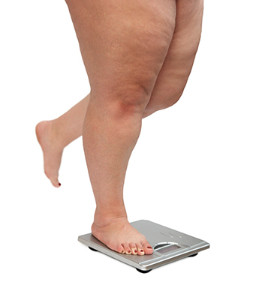 According to findings presented at the American College of Rheumatology Annual Meeting, patients with higher weights are more susceptible to foot pain. Instructor of Medicine Alyssa B. Dufour of Harvard Medical School and her colleagues studied 28 different measures over 57 years to identify the trajectories of weight in the Framingham Foot Study. After five such trajectories were established, patterns began to develop that showed a correlation between higher weight over time and higher levels of foot pain.
According to findings presented at the American College of Rheumatology Annual Meeting, patients with higher weights are more susceptible to foot pain. Instructor of Medicine Alyssa B. Dufour of Harvard Medical School and her colleagues studied 28 different measures over 57 years to identify the trajectories of weight in the Framingham Foot Study. After five such trajectories were established, patterns began to develop that showed a correlation between higher weight over time and higher levels of foot pain.
Obesity has become very problematic at this point in time and can have extremely negative effects on the feet. If you’re an obese individual and are concerned about your feet, contact Dr. Alan J. Spector from Shore Podiatry. Our doctor can provide the care you need to keep you pain-free and on your feet.
Obesity and Your Feet
Since your feet are what support your entire weight when standing, any additional weight can result in pain and swelling. Being overweight is one of the main contributors to foot complications.
Problems & Complications
Extra Weight – Even putting on just a few extra pounds could create serious complications for your feet. As your weight increases, your balance and body will shift, creating new stresses on your feet. This uneven weight distribution can cause pain, even while doing the simplest tasks, such as walking.
Diabetes – People who are overweight are at serious risk of developing type-2 diabetes, which has a drastic impact on the health of your feet. As you get older, your diabetes might worsen, which could lead to loss of feeling in your feet, sores, and bruises. You could also become more prone to various infections.
Plantar fasciitis – Pressure and stress that is placed on muscles, joints, and tendons can trigger plantar fasciitis, which is an inflammation of tissue that forms along the bottom of the foot.
If you have any questions please feel free to contact our office located in Point Pleasant, NJ . We offer the newest diagnostic and treatment technologies for all your foot and ankle needs.
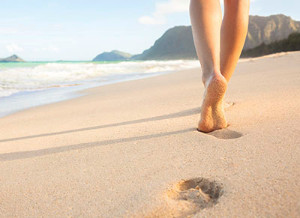 Traveling can be exciting, but nothing can ruin a trip like foot pain. And that’s not all that you need to watch out for when jet setting. Sitting in a small airplane seat, especially on a long flight, can lead to cramping and discomfort. In order to avoid this, try to walk the aisles as much as you can and stretch frequently. Drinking plenty of water and doing your best to avoid alcohol is also a good tip to avoid the aches and pains of a flight. When you land, there’s a good chance that you’ll be doing some walking. Be sure to wear comfortable shoes to avoid blisters and swelling. Remember, you can’t take a vacation from your feet.
Traveling can be exciting, but nothing can ruin a trip like foot pain. And that’s not all that you need to watch out for when jet setting. Sitting in a small airplane seat, especially on a long flight, can lead to cramping and discomfort. In order to avoid this, try to walk the aisles as much as you can and stretch frequently. Drinking plenty of water and doing your best to avoid alcohol is also a good tip to avoid the aches and pains of a flight. When you land, there’s a good chance that you’ll be doing some walking. Be sure to wear comfortable shoes to avoid blisters and swelling. Remember, you can’t take a vacation from your feet.
Everyday foot care is very important to prevent infection and other foot ailments. If you need your feet checked, contact Dr. Alan J. Spector from Shore Podiatry. Our doctor can provide the care you need to keep you pain-free and on your feet.
Everyday Foot Care
Often, people take care of their bodies, face and hair more so than they do for their feet. But the feet are a very important aspect of our bodies, and one that we should pay more attention to. Without our feet, we would not be able to perform most daily tasks.
It is best to check your feet regularly to make sure there are no new bruises or cuts that you may not have noticed before. For dry feet, moisturizer can easily be a remedy and can be applied as often as necessary to the affected areas. Wearing shoes that fit well can also help you maintain good foot health, as well as making it easier to walk and do daily activities without the stress or pain of ill-fitting shoes, high heels, or even flip flops. Wearing clean socks with closed shoes is important to ensure that sweat and bacteria do not accumulate within the shoe. Clean socks help to prevent Athlete’s foot, fungi problems, bad odors, and can absorb sweat.
If you have any questions please feel free to contact our office located in Point Pleasant, NJ . We offer the newest diagnostic and treatment technologies for all your foot and ankle needs.
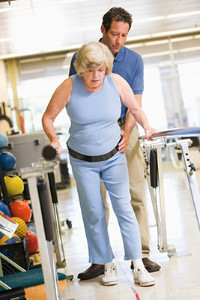 Foot diseases and other foot-related problems often become more prevalent as we age. Years of bearing body weight and certain ailments can combine to wreak havoc on the feet and ankles. The foot problems we may experience as time goes on vary from minor to potentially very serious. First and foremost, if you are a diabetic, foot care needs to be a high priority. Diabetic ulcers and sores, if left untreated, can lead to infection and even gangrene, resulting in amputation. Daily foot inspections are necessary to ensure that there are no cuts, sores, or swelling. Even something as seemingly minor as cracked skin on the foot can lead to terrible consequences if gone unnoticed. Using moisturizer and soap that doesn’t dry out the skin can help in this area. That being said, it is also important to keep the feet dry, as toenail fungus grows more readily in moist environments. Keeping the feet elevated is also a good tip. This will help circulate the blood to the lower extremities. Poor circulation can lead to serious medical conditions.
Foot diseases and other foot-related problems often become more prevalent as we age. Years of bearing body weight and certain ailments can combine to wreak havoc on the feet and ankles. The foot problems we may experience as time goes on vary from minor to potentially very serious. First and foremost, if you are a diabetic, foot care needs to be a high priority. Diabetic ulcers and sores, if left untreated, can lead to infection and even gangrene, resulting in amputation. Daily foot inspections are necessary to ensure that there are no cuts, sores, or swelling. Even something as seemingly minor as cracked skin on the foot can lead to terrible consequences if gone unnoticed. Using moisturizer and soap that doesn’t dry out the skin can help in this area. That being said, it is also important to keep the feet dry, as toenail fungus grows more readily in moist environments. Keeping the feet elevated is also a good tip. This will help circulate the blood to the lower extremities. Poor circulation can lead to serious medical conditions.
If you need your feet checked, contact Dr. Alan J. Spector of Shore Podiatry. Our doctor will attend to all of your foot and ankle needs and provide you with quality treatment.
Geriatrics and Podiatry
When people age, some common issues that may occur are bone density loss, dry skin, poor circulation, and rough brittle nails. These issues may also affect your foot health if the necessary steps are not taken to alleviate the problems.
It is important to take care of your feet because feet that are injured or diseased can affect your overall health. Having painful feet hinders your ability to do daily activities or may decrease your willingness to do the things that you need to do.
Visiting Your Geriatrician
As we age, health problems become more likely, so it is essential to visit your doctor for check-ups to ensure that you are doing the best you can to take care of your health. It is recommended to check your feet frequently for any possible cuts, bruises, swelling, corns or any other irregularities.
Taking Care of Elderly Feet
Cracked or dry feet can be treated by applying moisturizer often. It is also important not to wear old socks because the older the sock is, the higher the possibility there will be that there is bacteria there. Wear fresh socks and make sure they fit properly.
Proper foot health means that you can have a more active lifestyle and you will not be bogged down by pain. Foot health also leads to good circulation, which is paramount for overall health.
If you have any questions, please feel free to contact our office located in Point Pleasant, NJ . We offer the newest diagnostic tools and technology to treat your foot and ankle needs.
 Students at an elementary school in Desert Hot Springs, California were found to have contracted the virus Coxsackie, also known as hand, foot, and mouth disease. As the disease is highly communicable, a notification was sent out to parents of the students that could be exposed. The symptoms are rashes and blisters in the mouth, on the palms of the hands, and on the soles of the feet. It might be difficult to walk and there is typically an accompanying fever. If you develop blisters on your feet it is important that you try to keep them from rupturing, as the disease is spread through the fluid.
Students at an elementary school in Desert Hot Springs, California were found to have contracted the virus Coxsackie, also known as hand, foot, and mouth disease. As the disease is highly communicable, a notification was sent out to parents of the students that could be exposed. The symptoms are rashes and blisters in the mouth, on the palms of the hands, and on the soles of the feet. It might be difficult to walk and there is typically an accompanying fever. If you develop blisters on your feet it is important that you try to keep them from rupturing, as the disease is spread through the fluid.
When dealing with systemic disease of the feet, it is extremely important to check the affected areas routinely so that any additional problems are caught quickly. If you have any concerns about your feet and ankles contact Dr. Alan J. Spector from Shore Podiatry. Our doctor will assist you with all of your podiatric needs.
Systemic Diseases of the Feet
Systemic diseases affect the whole body, and symptoms usually are displayed in the feet. This condition can make a patient’s ability to walk unbearable. Systemic diseases include gout, diabetes mellitus, neurological disorders, and arthritis.
Gout – is caused by an excess of uric acid in the body. Common symptoms include pain, inflammation, and redness at the metatarsal/phalangeal joint of the base big toe. Gout can be treated by NSAIDs to relieve pain and inflammation, and other drugs that lower the acid levels in the body.
Diabetes mellitus – is an increase in the level of blood sugar that the body cannot counteract with its own insulin. Failure to produce enough insulin is a factor in Diabetes.
Diabetes of the Feet
Diabetic Neuropathy – may lead to damaged nerves and affect the feet through numbness and loss of sensation.
Peripheral Vascular Disease – can restrict the blood flow to the feet, and often times lead to amputation of the feet.
If you have any questions please feel free to contact our office located in Point Pleasant, NJ . We offer the newest diagnostic and treatment technologies for all your foot and ankle needs.
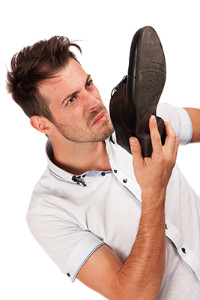 If you begin to notice redness or dry, scaly skin around the toes, you may be suffering from Athlete’s foot. This possibility is heightened when accompanied by foul odor, which is a sign of both bacteria and fungus abrading the skin of your feet. Avoid touching the feet and then touching the rest of your body, as Athlete’s foot is communicable through contact. Moist environments should also be avoided, and be sure to wear shoes when at the gym locker room. Many over-the-counter medications are available to treat Athlete’s foot. To determine what is suitable for your case, however, it is best to consult with your podiatrist.
If you begin to notice redness or dry, scaly skin around the toes, you may be suffering from Athlete’s foot. This possibility is heightened when accompanied by foul odor, which is a sign of both bacteria and fungus abrading the skin of your feet. Avoid touching the feet and then touching the rest of your body, as Athlete’s foot is communicable through contact. Moist environments should also be avoided, and be sure to wear shoes when at the gym locker room. Many over-the-counter medications are available to treat Athlete’s foot. To determine what is suitable for your case, however, it is best to consult with your podiatrist.
Athlete’s foot is an inconvenient condition that can be easily reduced with the proper treatment. If you have any concerns about your feet and ankles, contact Dr. Alan J. Spector from Shore Podiatry. Our doctor will treat your foot and ankle needs.
Athlete’s Foot: The Sole Story
Athlete's foot, also known as tinea pedis, can be an extremely contagious foot infection. It is commonly contracted in public changing areas and bathrooms, dormitory style living quarters, around locker rooms and public swimming pools, or anywhere your feet often come into contact with other people.
Solutions to Combat Athlete’s Foot
Athlete’s foot can cause many irritating symptoms such as dry and flaking skin, itching, and redness. Some more severe symptoms can include bleeding and cracked skin, intense itching and burning, and even pain when walking. In the worst cases, Athlete’s foot can cause blistering as well. Speak to your podiatrist for a better understanding of the different causes of Athlete’s foot, as well as help in determining which treatment options are best for you.
If you have any questions please feel free to contact our office located in Point Pleasant, NJ . We offer the newest diagnostic and treatment technologies for all your foot and ankle needs.
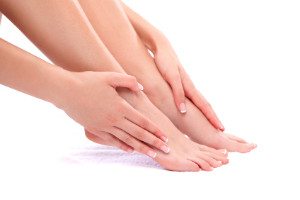 North Korean leader Kim Jong Un was recently seen limping in public, possibly due to his history of suffering from tarsal tunnel syndrome. The condition arises from the compression of the tibial nerve in the foot. The occurrence itself happened during a broadcasted report on the leader’s inspection visit to North Korea’s Kangwon Province. Symptoms of tarsal tunnel syndrome include a burning pain at the sole of the foot, numbness, or tingling. Treatment for tarsal tunnel syndrome may include anti-inflammatory medications and orthotics.
North Korean leader Kim Jong Un was recently seen limping in public, possibly due to his history of suffering from tarsal tunnel syndrome. The condition arises from the compression of the tibial nerve in the foot. The occurrence itself happened during a broadcasted report on the leader’s inspection visit to North Korea’s Kangwon Province. Symptoms of tarsal tunnel syndrome include a burning pain at the sole of the foot, numbness, or tingling. Treatment for tarsal tunnel syndrome may include anti-inflammatory medications and orthotics.
Tarsal tunnel syndrome can be very uncomfortable to live with. If you are experiencing tarsal tunnel syndrome, contact Dr. Alan J. Spector of Shore Podiatry. Our doctor can provide the care you need to keep you pain-free and on your feet.
Tarsal Tunnel Syndrome
Tarsal tunnel syndrome, which can also be called tibial nerve dysfunction, is an uncommon condition of misfiring peripheral nerves in the foot. The tibial nerve is the peripheral nerve in the leg responsible for sensation and movement of the foot and calf muscles. In tarsal tunnel syndrome, the tibial nerve is damaged, causing problems with movement and feeling in the foot of the affected leg.
Common Cause of Tarsal Tunnel Syndrome
The Effects of Tarsal Tunnel Syndrome
A physical exam of the leg can help identify the presence of tarsal tunnel syndrome. Medical tests, such as a nerve biopsy, are also used to diagnose the condition. Patients may receive physical therapy and prescriptive medication. In extreme cases, some may require surgery.
If you have any questions please feel free to contact our office located in Point Pleasant, NJ . We offer the newest diagnostic and treatment technologies for all your foot and ankle needs.